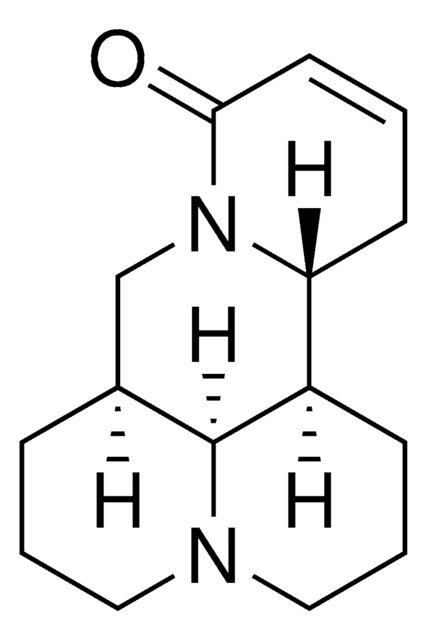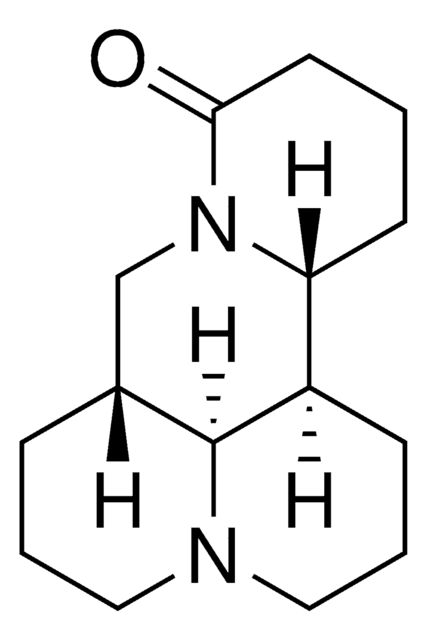M5319
Matrine
Synonym(s):
Matridin-15-one, Sophocarpidine
About This Item
Recommended Products
Quality Level
application(s)
metabolomics
vitamins, nutraceuticals, and natural products
storage temp.
2-8°C
SMILES string
O=C1CCCC2C3CCCN4CCCC(CN12)C34
InChI
1S/C15H24N2O/c18-14-7-1-6-13-12-5-3-9-16-8-2-4-11(15(12)16)10-17(13)14/h11-13,15H,1-10H2/t11-,12+,13+,15-/m0/s1
InChI key
ZSBXGIUJOOQZMP-JLNYLFASSA-N
Looking for similar products? Visit Product Comparison Guide
General description
Application
- to study its antioxidant and protective effect on doxorubicin (DOX)-induced cardiotoxicity in mice model and H9C2 cells
- as a chemotherapeutic agent to test its inhibitory effect on the growth of human glioblastoma multiforme (GBM) cells, and ovarian cancer cells
- to study its effect on mitochondrial fission and its anti-tumor functionality in HepG2 cells
- as a necroptosis inducer in cholangiocarcinoma (CCA) cell lines
Biochem/physiol Actions
Signal Word
Warning
Hazard Statements
Precautionary Statements
Hazard Classifications
Acute Tox. 4 Oral
Storage Class Code
11 - Combustible Solids
WGK
WGK 3
Flash Point(F)
Not applicable
Flash Point(C)
Not applicable
Personal Protective Equipment
Certificates of Analysis (COA)
Search for Certificates of Analysis (COA) by entering the products Lot/Batch Number. Lot and Batch Numbers can be found on a product’s label following the words ‘Lot’ or ‘Batch’.
Already Own This Product?
Find documentation for the products that you have recently purchased in the Document Library.
Our team of scientists has experience in all areas of research including Life Science, Material Science, Chemical Synthesis, Chromatography, Analytical and many others.
Contact Technical Service







